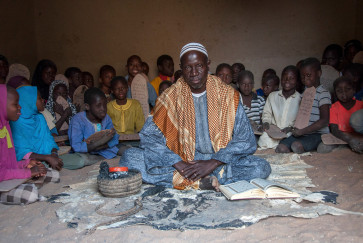A new Northwestern University study found that white parents’ racial bias awareness was associated with greater willingness to discuss race with their children, along with increased color consciousness and decreased color blindness.
Previous evidence suggests that white parents generally avoid race-related conversations with their children, relying on society to provide explicit education about race. The new study explores the individual difference factors that may be associated with white parents’ racial socialization practices.
The results could have potential implications for interventions to reduce racial biases and discrimination in childhood.
The researchers chose to focus on the parents of middle-childhood-aged children (8 to 12 years old) in part because by this age, children have developed an abstract understanding of the concept of race and, therefore, most parents would have had opportunities to discuss race and racism with their child.
When describing these racial discussions, parents who were higher in bias awareness were more likely to use language acknowledging racism (e.g., “Some people think that the color of someone’s skin means they are inferior”), and less likely to use language denying racism (e.g., “Some people like to cry racism for everything and ignore the facts”).
By not socializing their children about race, the researchers say, white parents may be unintentionally setting their children up to be ignorant to the racial biases and inequalities that persist in society. Moreover, by failing to discuss race with their children, parents may be implicitly endorsing the negative racial messages children are exposed to from society.
“The current findings suggest that, beyond their racial attitudes and interracial contact, it is parents’ awareness of their own racial attitudes and biases and their concerns about responding without prejudice that are associated with them talking to their children about race and acknowledging racial biases in society,” said Sylvia Perry, lead author of the study and an assistant professor of psychology in the Weinberg College of Arts and Sciences at Northwestern.
Perry’s previous research in this area shows that white people who are higher in bias awareness are more likely to internalize feedback suggesting that they hold biases, and that this internalization is associated with an increased desire to support diversity efforts.
“These findings,” Perry said, “extend that work to suggest that, not only are these individuals willing to internalize that feedback and acknowledge that biases of all kinds are problematic, but that these tendencies may trickle down to impact how they talk about race and racism with others, including their children.”
In the study, parents responded to open-ended questions including, “What would you say if your child asked you about race?” and “Describe how you have discussed recent current events related to race, such as events related to Trayvon Martin, Michael Brown or the Charleston shooting, with your child. If you have not discussed them, describe why you chose not to do so.”
Repeated conversations between parents and their children over time could potentially have long-term impacts on the racial attitudes and biases of white children, said Perry, also a faculty associate with the University’s Institute for Policy Research.
“This type of intervention strategy would also impact racial attitudes while children are still in the process of developing, which has been referred to as an optimal time for intervention,” Perry said. “Moreover, this approach would maximize the impact of interventions, such that training one parent on how to engage in racial socialization has the potential to impact the racial attitudes of several children.”
“Bias awareness predicts color conscious racial socialization methods among White parents” published Aug. 26 in the Journal of Social Issues’ special issue on “Research on Race and Racism.” In addition to Perry, co-authors include Allison L. Skinner, University of Georgia; and Jamie L. Abaied, University of Vermont.


